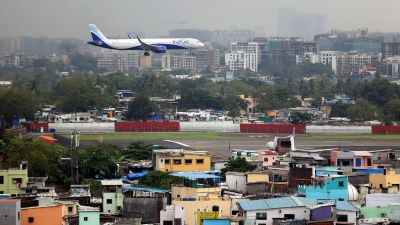Farmers146; suicides: PM plan for sector delayed
Almost a year after Prime Minister Manmohan Singh8217;s much-hyped visit to Vidarbha, the country8217;s farmer suicide capital

Almost a year after Prime Minister Manmohan Singh8217;s much-hyped visit to Vidarbha, the country8217;s farmer suicide capital, the UPA Government8217;s plan to tackle the problem of rising rural indebtedness is yet to kick off. A high-level expert group under Indira Gandhi Institute of Development and Research IGIDR Director R Radhakrishna, personally appointed by the PM after his visit, is yet to submit its report.
While it was originally expected much before the Budget, in his foreword to the three-year report card of UPA released last month, the PM indicated he expected the report by the end of May. However, committee members told The Indian Express that the report would take another two-three weeks. 8220;We met on Monday and have begun drafting the final recommendations,8221; a member said.
8220;The suicides are only a symptom of the crisis in the farm sector due to its prolonged neglect. Our recommendations call for institutional reforms as well as specific regional measures to tackle the different manifestations of indebtedness in different parts of the country,8221; the member added. Even as the group8217;s report is awaited, the Government has already got two other reports on the issue, but their recommendations remain largely on paper.
While an RBI-appointed technical committee on alleviating rural indebtedness submitted its report last November, the Planning Commission had set up a sub-group on 8216;indebtedness of farmers8217; within the working group on 8216;outreach of institutional finance and cooperative reforms8217; for the Eleventh Five Year Plan. Punjab State Planning Board Vice-chairman Sardar Singh Johl chaired the two groups.
The report submitted to RBI suggested some far-reaching moves 8212; set up of a self-sustaining Rural Credit Guarantee Scheme for making good non-wilful defaults, open up of trading in commodity options and enable banks to act as aggregators so that small and marginal farmers can partake in futures and options trading, and most significantly, enact a new 8216;Moneylenders8217; Regulation Act8217; to protect small farmers from usurious rates of interest. It was also recommended that banks set up financial and technical counselling centres for distressed farmers.
In his annual policy speech this April, RBI Governor Y V Reddy promised that the details of a Credit Guarantee Scheme for distressed farmers will be placed in the public domain by May 31, 2007. But that is yet to happen. Senior RBI officials say that the scheme is still being finalised.
As for the new legislation for moneylenders, the RBI had appointed a technical group under Punjab National Bank Chairman and MD SC Gupta, whose report is expected by June 30.
The recommendations made to the RBI as well as the Planning Commission are largely similar and both stress on the need to attract industries to rural areas to remove excess people from farming and reduce small and marginal farmers8217; reliance on farm income alone. Twenty-year tax holidays, capital subsidies and other benefits for clean and green industries have been mooted to lure industry to the countryside along with a mandate to employ at least 80 per cent workers from rural areas.
- 01
- 02
- 03
- 04
- 05































